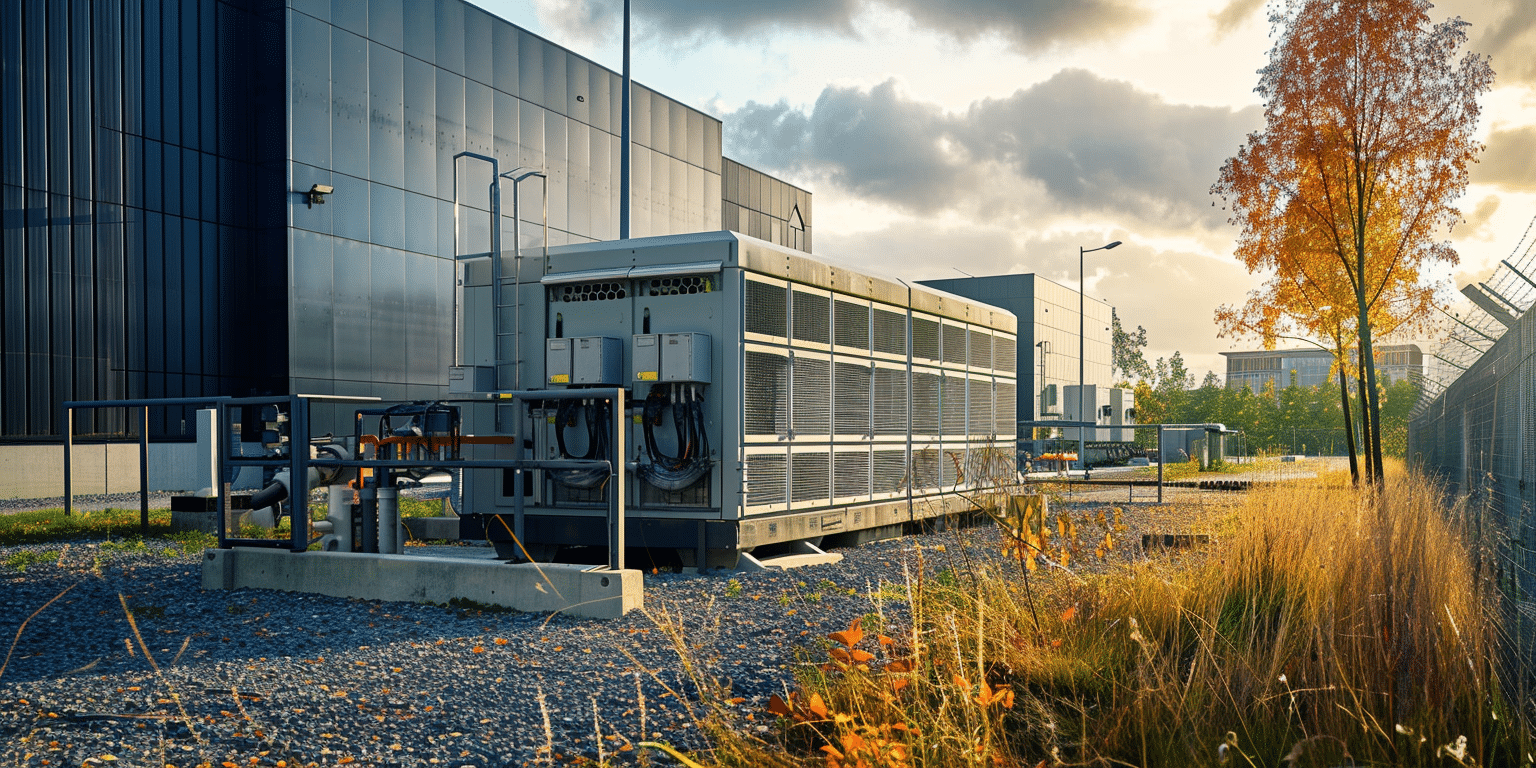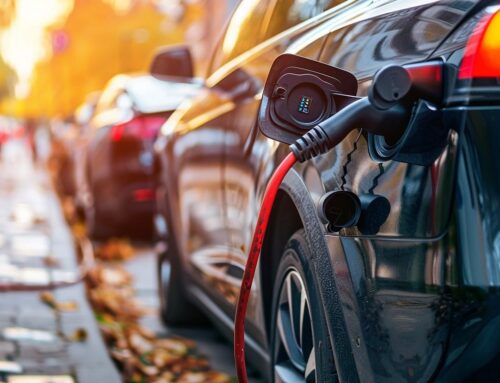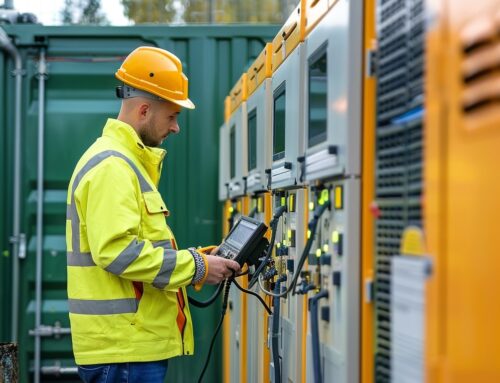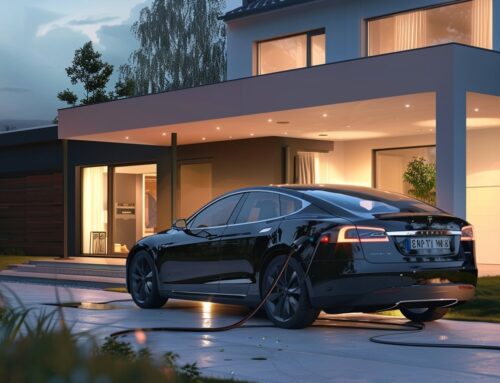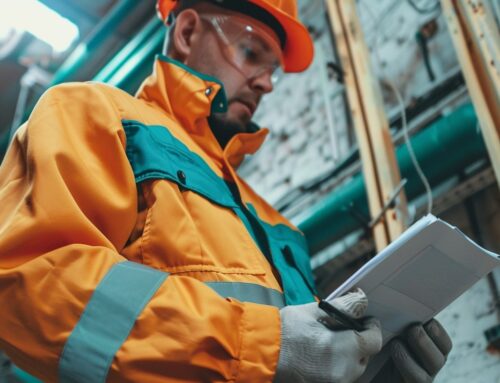A reliable backup generator is key to uninterrupted power. Knowing the differences between residential and commercial generators is crucial during a power outage, whether for your home or business. This article will explore the main differences between residential and commercial generators, which will help you choose the right emergency power supply. We will also guide you through the home generator selection process.
Powering Up: Navigating the Choice Between Residential and Commercial Generators
Choosing the right generator means knowing what you need. It’s about whether you need a commercial standby generator or a smaller unit for your home. We’ll look at key points for both residential and commercial generators. These tips will help you pick the one that fits your needs.
Fuel efficiency is vital when picking a generator. A fuel-efficient generator saves you money over time. Always check the generator fuel efficiency ratings and choose wisely.
For your home, think about what appliances you need during a blackout. List the wattage required for items like fridges and heaters. Then, find a generator that can handle all these needs. Also, consider the generator’s size and if you can quickly move it.
Commercial places have more extensive power needs. This means using industrial standby power systems. These systems support heavy-duty equipment like HVAC and data centers. They ensure a continuous power supply during emergencies.
Knowing about generator fuel efficiency, power needs, and available systems helps you choose. Next, we’ll explore the differences between home and business generators.
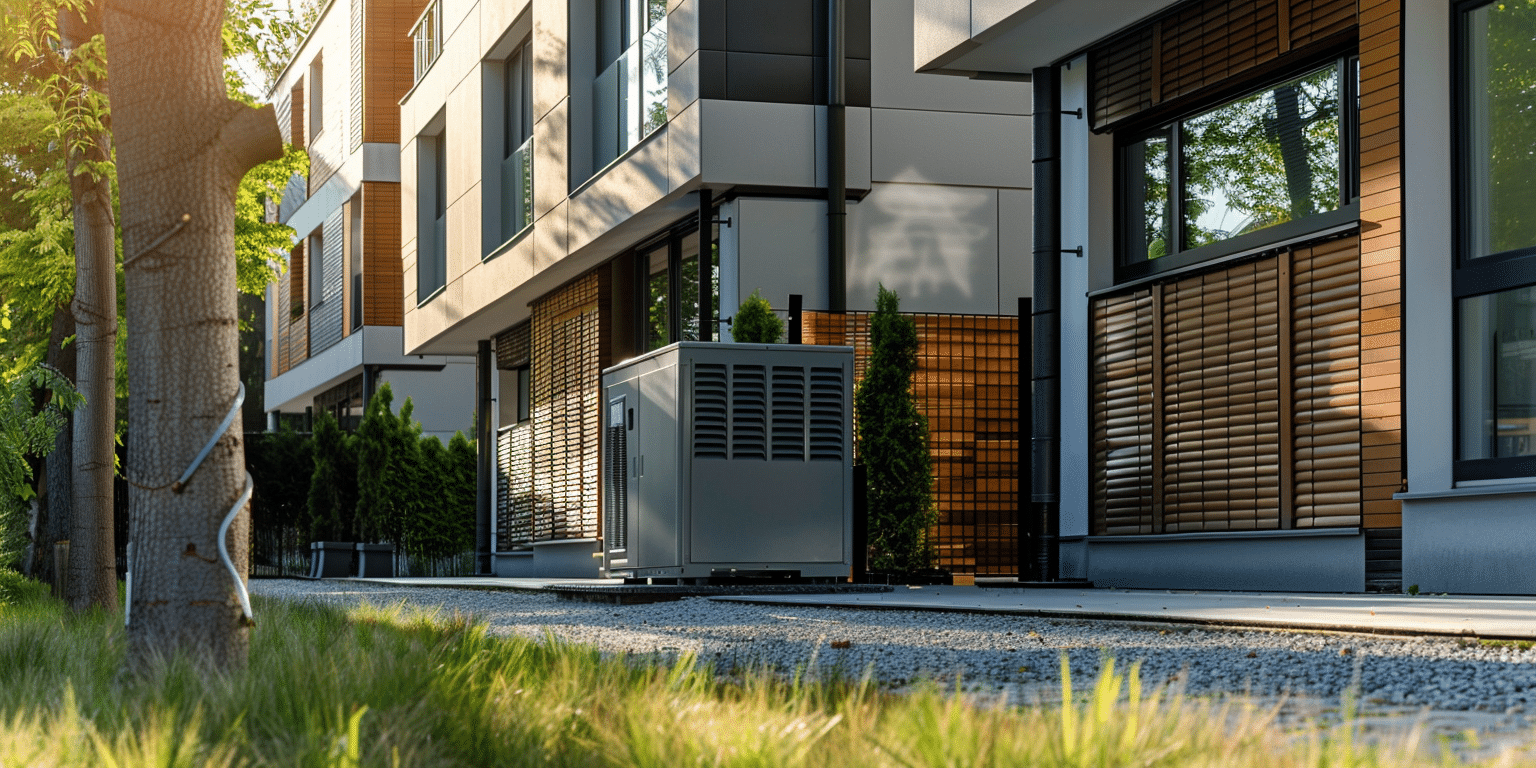
Core Differences Between Residential and Commercial Generators
Residential and commercial generators differ in many ways, including power capacity, size, fuel types, and efficiency. It is important to consider these factors.
Power Capacity and Size
Residential and commercial generators do not have the same power. For homes, generators can provide power from 5 to 22 kilowatts, but be mindful to calculate your needs in kW accurately. However, for larger places, commercial generators offer power from 22 kilowatts to several megawatts.
Residential generators are smaller, so they fit well in homes with less space. Commercial generators, being larger, need more room. They also need good ventilation and soundproofing.
Generator power capacity decides which appliances it can run. Household generators keep lights, fridges, and heaters running. However, commercial generators power whole buildings. They run lights, heating and cooling systems, and large machines.
Fuel Types and Efficiency
Residential generators use fuels like gasoline, propane, or natural gas. These fuels are easy for people to get. This makes running these generators straightforward.
Commercial backup generators have more fuel options, such as diesel and bi-fuel. Diesel generators are efficient and last longer. Bi-fuel ones use diesel and natural gas, making them cost-effective and flexible.
Efficiency matters when picking a generator. Smaller residential generators use less fuel due to their size. But, commercial generators, built for longer use, often work more efficiently.
Choosing the right generator for business use is key. It’s best to go to a trusted commercial generator supplier. Good suppliers offer many choices and give professional advice. They ensure the generator is reliable and of high quality.
Selecting a Residential Generator
Choosing the right residential generator is important. First, figure out how much power your home needs, typically measured in kilowatts (kW). This ensures that the generator can keep essential appliances running during an outage.
Assessing Your Home’s Power Needs
Start by listing the essential appliances and systems you need during an outage. Include things like refrigerators and security systems. Then, calculate their total power needs to find the minimum generator capacity required.
Remember, power needs can change based on the length and severity of the outage. Consider future needs and the most important appliances to ensure your generator meets your demands.
Features to Look For
There are several key features to look for in a residential generator:
- Fuel type and efficiency: Choose a generator that uses a fuel type that is efficient and available in your area. This ensures you won’t run out of power.
- Automatic transfer switch: A generator with an automatic transfer switch switches between the main power and the generator smoothly during an outage.
- Noise level: A quieter generator is important if you live close to others or prefer a peaceful environment.
- Warranty and support: Pick a generator from a trusted brand with a solid warranty and good customer support.
Also, consider the generator’s size, installation, and cost. A good choice balances all these factors. And remember: regular maintenance is crucial for keeping your generator ready when needed.
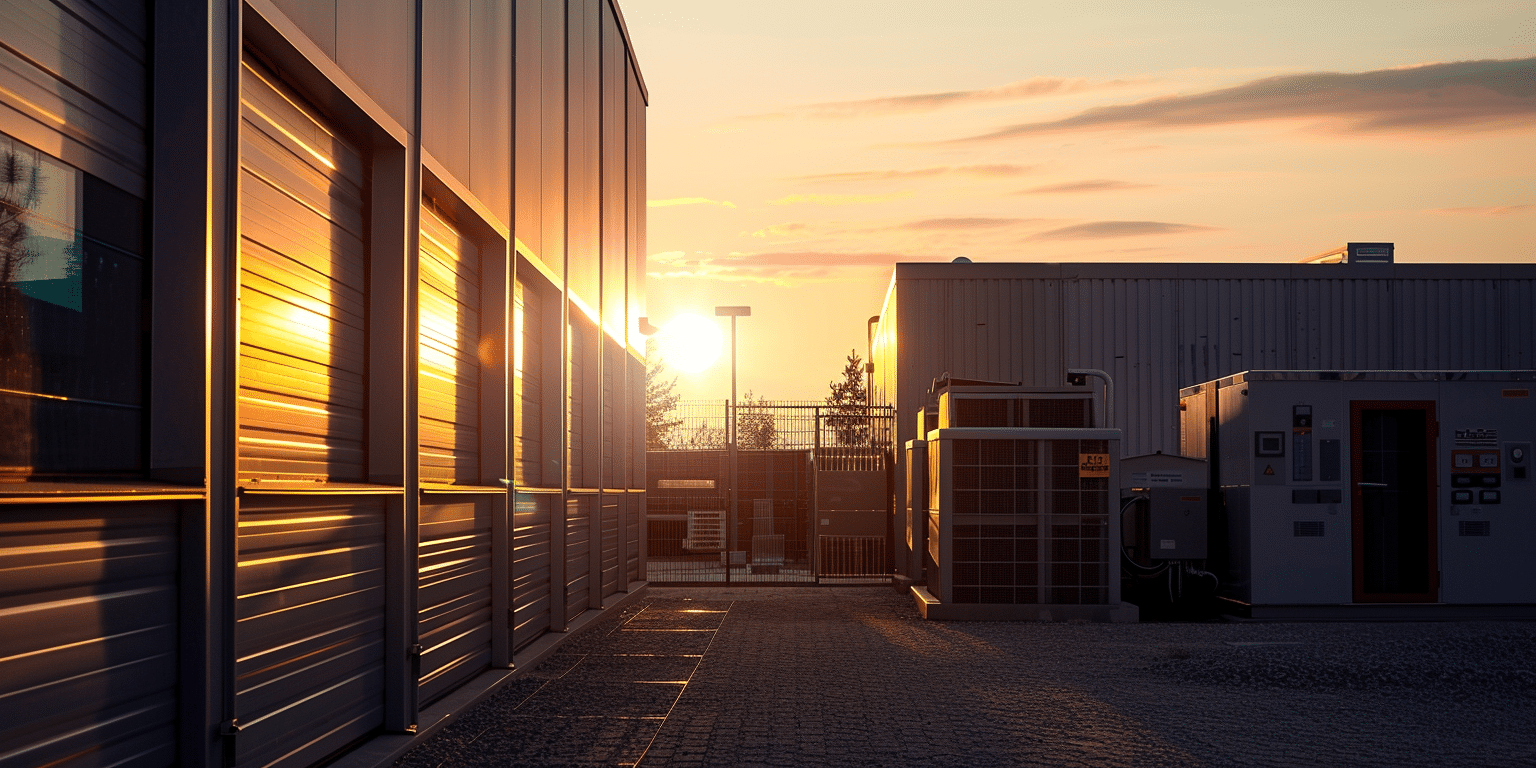
Choosing the Right Commercial Generator
Businesses have unique power needs that require reliable backup solutions. When picking a commercial generator, evaluate your business’s power requirements and the different features and services available on the market.
Understanding Commercial Power Requirements
Offices, hospitals, data centers, and factories need more power than homes. Power needs vary based on business size and type. Knowing your power needs before picking a generator is essential.
Consider your equipment’s total power use, how many critical devices must stay on during a blackout, and any power surge needs. Certain industries have sensitive equipment.
Commercial Generator Features
Commercial generators are built for businesses’ high power demands. They have special features to ensure power keeps flowing during emergencies.
Look for these key features in commercial generators:
- Power capacity: Generators come in various sizes and power levels to meet business needs. Choose one that can handle all your critical equipment and systems.
- Fuel efficiency: They’re designed to use fuel efficiently. This saves money and keeps them running longer during outages.
- Automatic transfer switches: These switches smoothly move power from the main grid to the generator, keeping your power on without interruption.
- Noise reduction: Loud noise can be a problem in business settings. Select generators with noise reduction to keep your workspace quiet.
- Remote monitoring and control: Many generators let you manage your power remotely. This means you can stay updated on how your generator is doing in real-time.
Choosing the right generator is about more than features. Working with a professional for installation ensures your generator works well and lasts long.
Consider renting a generator if you need power for a short time or have special needs. Rental services offer flexible options to get reliable power without buying a generator.
Installation Considerations
Installing generators requires careful thought and planning. The right setup is key to their safety and effectiveness in homes or businesses.
Residential Generator Installation
The first step is to choose where to put a home generator. It should be in a spot with good airflow and far from anything that can catch fire.
You also need the right permits and to follow local building rules. This makes sure the installation is safe and avoids legal problems.
After getting a location and permits, you can start installing. This usually means connecting the generator to your home’s electrical panel. An automatic transfer switch is also installed to make switching between utility and generator power easy.
It’s vital to work with experienced professionals for installation. They ensure the generator is set up correctly, grounded, and hooked up to fuel appropriately.
Once installed, testing the generator is important to ensure it works properly. This includes making sure the transfer switch functions and the generator can handle the intended load.
Commercial Generator Setup
Setting up a generator for a business takes careful planning. The process changes based on the business’s size and power needs.
Choosing a good spot for the generator is just as crucial for businesses. It should be easy to reach but safe from harm or theft, possibly requiring an accessory for added security.
Getting help from a trusted generator supplier is key for businesses. They help pick the right generator size and capacity for the business’s needs.
The setup involves connecting the commercial standby generator to the business’s main electrical system. This ensures that power switches switch smoothly during an outage. Commercial systems also have auto start and stop, remote control, and fuel management.
For example, getting the necessary permits and following the rules are critical with home generators. Professionals should also handle the setup to ensure the generator is correctly installed.
Keeping generators well-maintained and inspected is crucial for homes and businesses. Regular care, including checking all accessories, ensures they’re ready and reliable for emergencies.
With these installation steps and professional help, homes and businesses can have a dependable generator system. This ensures power is there when needed the most.
Maintenance and Upkeep
Regular check-ups are vital to ensuring generators work well, whether they’re for home or business use. With a proper maintenance schedule, your generator will run smoothly for a long time. To help, here’s a basic guide for caring for your home generator:
Maintaining a Residential Generator
- Inspect the generator regularly: Look for any signs of wear, leaks, or damage. Fix problems quickly to prevent more issues.
- Test the backup system: Make sure to test your generator often. Check that it starts correctly, generates power, and connects safely.
- Keep the generator clean: Clean off any dirt or debris. This prevents blocks and keeps it from getting too hot.
- Change the oil and filters: Do this according to the guidelines. Changing oil and filters keeps the engine in good shape.
- Inspect and clean the spark plugs: Regularly check the spark plugs. Clean or change them as necessary for good performance.
- Check the fuel system: Check the fuel lines and tank for issues. Always use clean, uncontaminated fuel.
- Test the battery: If your generator has a battery, test it to ensure it powers it well.
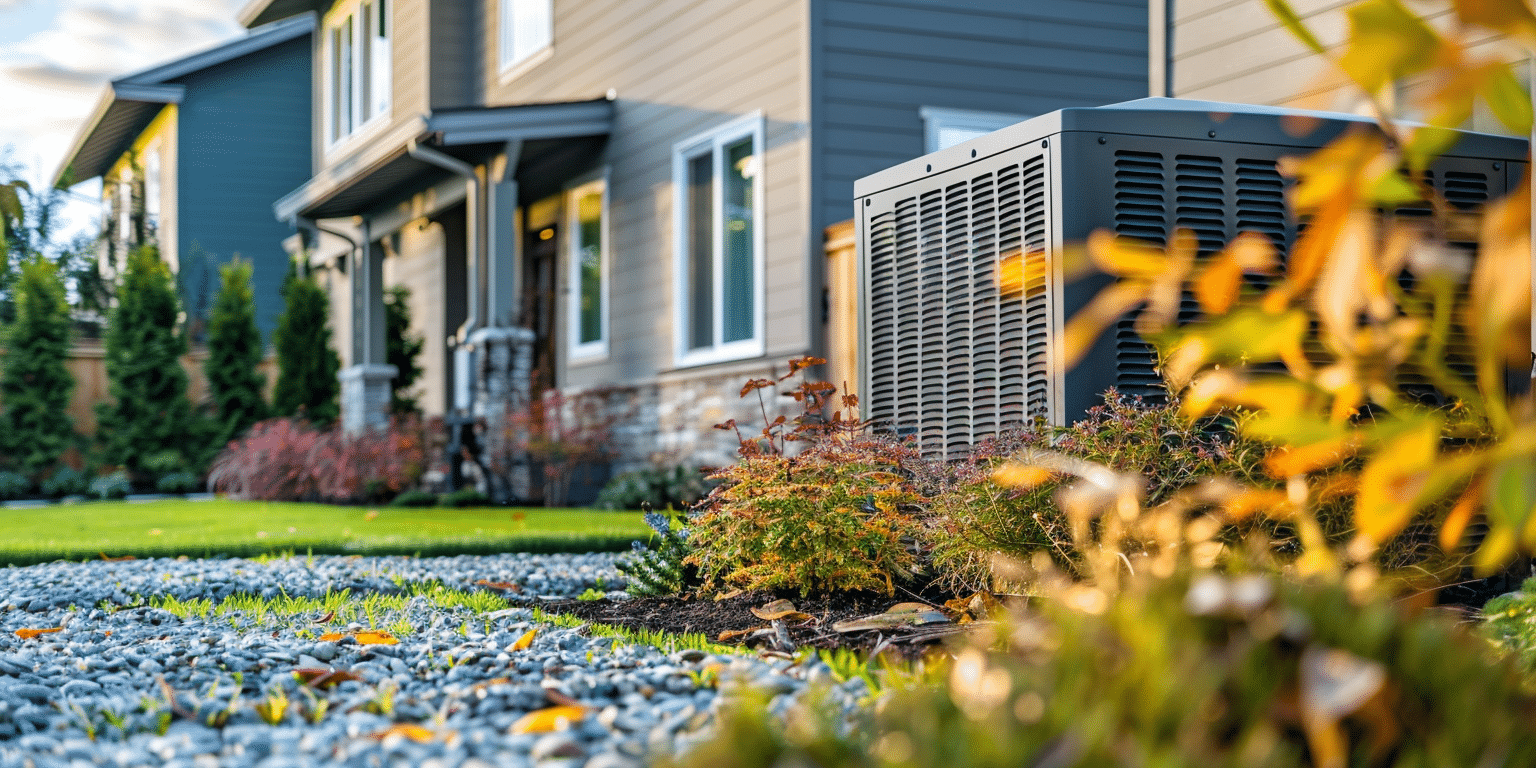
Commercial Generator Maintenance
Maintaining a commercial generator takes special care for the best performance:
- Schedule regular inspections: Have your commercial generator inspected by professionals regularly. This helps catch and fix problems early.
- Perform load bank testing: This test checks if a generator can handle its top workload. It ensures it will work when most needed.
- Check and service the cooling system: Keeping the generator cool is vital. Check the cooling parts often and follow the guidelines for upkeep.
- Inspect electrical connections: Look at all wiring and connections. Make sure they’re tight and not damaged to avoid failures.
- Monitor fuel quality: Always use the right fuel. Wrong or bad fuel can make the generator less reliable.
- Keep a maintenance log: Write down all care, checks, and fixes made to the generator. This record is helpful for future maintenance and problem-solving.
By sticking to these care tips, owners of residential and commercial generators can enjoy steady, reliable power. This also makes their generators last longer and reduces the chances of sudden breakdowns.
Energizing Decisions: Making the Right Generator Choice for Your Power Needs
Choosing the right generator is critical to ensuring backup power. Whether it’s for home or business, making a smart choice matters. This ensures you’re prepared for power outages.
Start by figuring out how much power you need. Consider what appliances and equipment must stay on during a blackout. This will help you decide whether a home or business generator is best for you.
Commercial generators can power many devices at once. They’re bigger and stronger than home generators. Home generators keep essential appliances running.
There are many generators available to fit your needs. Whether for your home or your business, you have choices. Do some research and talk to experts to find the perfect match.
Understanding your needs and looking at your options is crucial. It doesn’t matter if it’s for commercial or residential use. Picking the correct generator ensures you always have the power you need.
Summary
This article discusses the differences between residential and commercial generators and what to consider when choosing one. We stress the need for a reliable standby generator for emergencies for both homes and businesses.
Residential generators cater to homes’ power needs. On the other hand, commercial generators, including commercial backup generators, deal with businesses’ higher power demands. It’s important to know your power needs. Consider the size of your place and the number of appliances.
We’ve talked about how fuel efficiency is key in choosing a generator. It affects cost and the environment, so choosing a fuel-efficient generator is vital. Selecting a generator with high watt efficiency ensures savings and helps reduce the carbon footprint.
We’ve also discussed the importance of regular maintenance. Maintenance ensures that both home and business generators work when needed. Working with professional suppliers for setup and upkeep can give you peace of mind.
When choosing a generator, carefully consider the wattage (kW) capacity when choosing it fits your power needs. Look at what’s available in the market. Whether it’s for your home or business, having a reliable generator means you’re ready for power outages.

